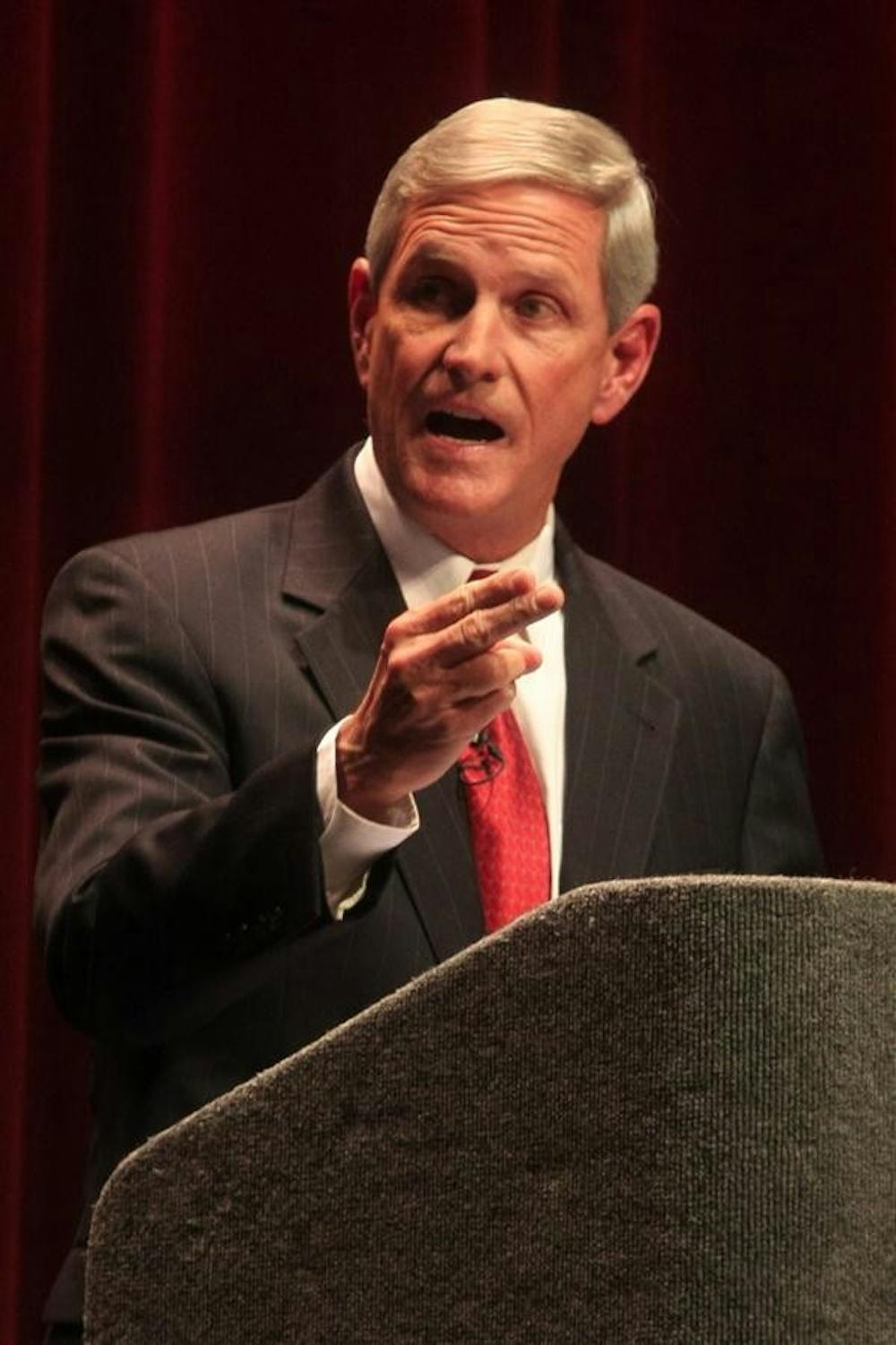Nonprofit groups, or 501(c)(4)s, are teaming up with Political Action Committees to oust 9th District Democratic incumbent Rep. Baron Hill from the U.S. Congress.
With the decision of the U.S. Supreme Court, in the Citizens United v. Federal Election Commission case, the government is banned from capping corporation’s spending in elections, and nonprofit groups, or 501(c)(4) groups, don’t have to disclose their donors.
Hill’s 9th District Republican opponent Todd Young voiced his support for the Citizens United ruling at the 9th Congressional District debate Oct. 18 in Bloomington, calling it a First Amendment right.
The National Republican Congressional Committee alone has spent more than $5 million against Hill, according to reports filed by the FEC.
The NRCC’s most recent attack advertisement against Hill condemns his support of the stimulus package and questions his loyalty to fellow Hoosiers.
“Hoosiers know me and that I stand with them,” Hill said. “No amount of negative ads from Washington special interests can change that.”
Young and his campaign were unavailable for comment.
Other groups working against Hill include the Coalition to Protect Seniors, Inc.; Susan B. Anthony List, Inc., a political action committee that seeks to eliminate abortion in the U.S.; and the American Future Fund, a 501(c)(4).
Ideas have surfaced about the agenda of the American Future Fund with the discovery that one of its contributors is Bruce Rastetter, the CEO of Hawkeye Energy Holdings, one of the country’s largest ethanol producers.
As a member of the House Energy and Commerce Committee, Hill has legislative oversight in ethanol and other energy sources, which might explain why he, along with 13 other Democratic politicians have been targeted by American Future Fund ads.
Nearly every incumbent on the organization’s list sits on a panel with influence over energy or agriculture policy.
Of the 14 candidates, five sit on the House Committee on Agriculture and two are on the Energy and Commerce Committee.
Hill said he believes the Citizens United case was wrongly decided.
“There is too much money in politics right now, and Citizens United has opened up a floodgate of anonymous corporate money that is trying to buy our elections,” Hill said.
“People have a right to spend their money, but citizens should also have the right to know who is spending money to support or defeat a particular candidate.”
Despite the numerous attack ads against Hill, the incumbent still leads with about $1.9 million in receipts, compared to Young with about $1.7 million.
Hill has racked up a good chunk of his contributions from union organizations such as America’s Union Movement, Congress of Industrial Organizations, Service Employees
International Union, United Food and Commercial Workers, American Federation of State County and Municipal Employees, according to the FEC.
The Democratic Congressional Campaign Committee has also supported Hill by running ads targeting Young.
Most recently, The DCCC released two ads titled “We Can’t Trust His Story and We Can’t Afford His Ideas,” and “He’s Got a History We Can’t Trust,” criticizing Young’s support of Social Security privatization and the National FairTax, a national retail sales tax to replace all of the current federal taxes.
Despite the funds and the ads paid for by Hill supporters, The National Journal predicted Young is more likely to win the congressional seat.
On Monday, out of the 80 races, The National Journal ranked the 9th District Congressional race to be the 29th most likely to switch party control after Tuesday’s 2010 midterm election.
The race is between Hill (D), Greg Knott (L) and Young (R).
PACs work to oust Hill from Congress

Get stories like this in your inbox
Subscribe





